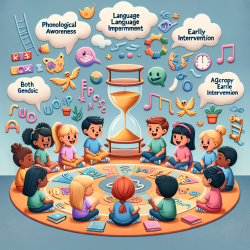As practitioners dedicated to fostering optimal outcomes for children, it's imperative to continually enhance our skills and strategies based on robust research findings. A recent study titled Predictors of Parental Recall of Newborn Hearing Screening Program in Saudi Arabia offers valuable insights that can significantly improve our practice, particularly in enhancing parental recall of newborn hearing screening (UNHS).
The study surveyed 1,533 parents in Saudi Arabia and found that only 29.9% recalled a hearing screening at birth, while 47.8% were unable to remember. This highlights a critical gap in parental awareness and recall, which can impede early intervention for hearing impairments. The study identified several predictors of better recall, including being female, aged 30-34, consanguineous, and having a newborn treated with antibiotics.
Here are actionable steps practitioners can take based on these findings:
- Enhance Communication: Clearly communicate the importance of hearing screenings to parents, emphasizing the potential long-term benefits for their child's development.
- Targeted Education: Develop educational materials tailored to parents, particularly those less likely to recall screenings, such as older parents and those with chronic diseases.
- Follow-Up Protocols: Implement robust follow-up protocols to ensure that parents understand and act on recommendations, especially for newborns who fail initial screenings.
- Public Health Campaigns: Advocate for public health campaigns that raise awareness about the significance of UNHS and the need for early follow-up.
By integrating these strategies into our practice, we can significantly enhance parental recall of newborn hearing screenings, leading to earlier interventions and better outcomes for children with hearing impairments.
To read the original research paper, please follow this link: Predictors of Parental Recall of Newborn Hearing Screening Program in Saudi Arabia.










